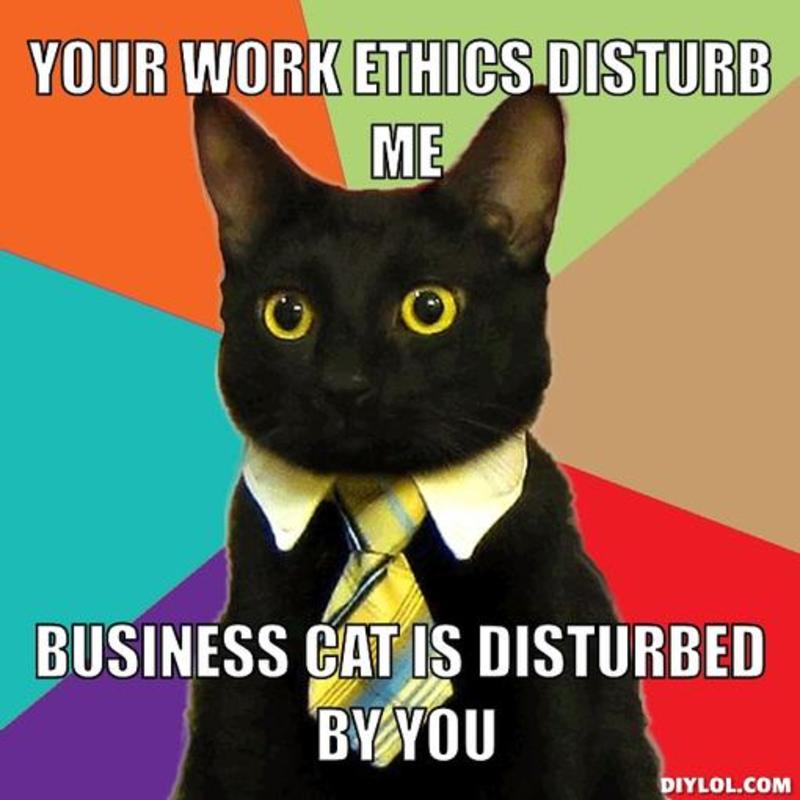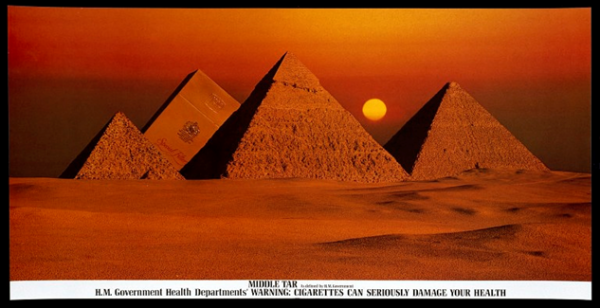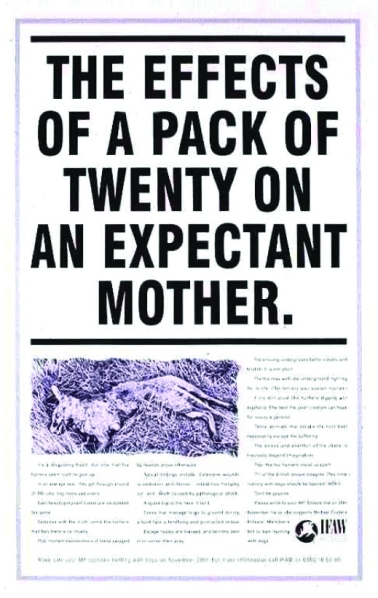I was once approached to work on a tobacco account.
I was freelancing at the time and thinking about getting a ‘proper job’ but my opinion about Tobacco and the adman’s position of guilt free advocacy had changed by then from the one I entered in to the business with.
Some people believe, rather like a lawyer defending a pedophile or a rapist, that as an adman you are given the brief and it is your job to do the best you can, no matter what the ethical or moral status of the brand.
(I once worked on the Conservatives, Ken Livingstone’s Mayoral campaign and The Liberal democrats within a few years of each other, how’s that for advocacy?)
When people of my generation began working in advertising the flagship accounts in many agencies were the tobacco accounts. Silk Cut, Benson and Hedges, Marlboro even. They dominated the awards and made stars of the creatives and photographers who crafted them.
The legal restrictions had, rather than clipping any creative wings, given flight to some extraordinary adverts.
Sound familiar?
I must admit to envying the geniuses that created these simple yet beguiling masterpieces and would have, at the time, killed to work on them.
But times change and I think the British landscape is now better for not having these enticing images plastered everywhere. Can you imagine what social media would have allowed the tobacco companies to achieve in recruiting young blood?
A few years back the agency I was working at was invited to work for a PARTNERSHIP FOR A DRUG FREE AMERICA.
We had done some nice work for the International Federation of Animal Welfare in helping ban fox hunting which had caught the eye of this prestigious organization. Even though we were based in London they scanned the world’s agencies for willing donors who, in turn, lined up to help.
It was pro-bono but an opportunity to do some nice work. The brief was to get teens to stop sniffing illegal substances like lighter fluid and glue.
The whole department churned out ads by the bucket-load and competed for the winning concepts.
But one ad we did I remember for a surprising reason. The headline read “IF YOU FIND LIGHTER FLUID IN YOUR TEENAGER’S BEDROOM, PREY THEY’VE STARTED SMOKING”
The copy talked about how sniffing actually kills more teenagers than lung cancer ( or something) and that it can do it suddenly.
The ultimate brain-freeze.
Everyone loved it, apart from one of the sponsors of the campaign. Phillip Morris.
Wait, what?
Yes, a partnership for a drug free America was funded by one of the largest Tobacco manufacturers in the world.
How about that for an ethical conundrum?
When you join the pharmaland creative brother and sisterhood you imagine that these sorts of ethical dilemmas, working on cars that pollute, or alcohol that destroys lives or even fast food brands that are rendering the world both obese and diabetic, are left behind you.
By and large, we like to think that we are doing some good. Helping HCPs make the right decisions, promoting life-saving treatments and drugs, improving patients lives through digital devices and increasing awareness of little known diseases.
It seems a worthy enough existence.
But some people out there have a different view. Big pharma companies are money-grabbing monoliths that only have profit as a goal.
The people who work there are suited corporate sharks who pray on the weak and keep the cure for cancer a well guarded secret lest their profits be affected. They are only interested in chronic diseases because that’s where the money is.
Ever had that argument round a dinner table?
Of course, like most things the truth is somewhere in the middle. Pharma companies are not whiter than white but on the other hand the last person to die of AIDS in the UK, thanks to ‘big pharma’ was about ten years ago.
And Cancer is no longer a certain death sentence thanks to the investment and dedication of many pharma companies and their dedicated scientists.
A few months back I threw my opinion into a Facebook debate about this very subject. On one hand the hippy-dissenters believed that positive thinking and herbal remedies can cure cancer (“believe me…I have loads of friends who have beaten cancer without drugs”) and on the other hand there were people who have seen the data.
As Tim Minchin says “You know what they call alternative therapies that actually work?….medicine”
But my self-righteous status as someone who worked in pharmaland was perceived rather differently among the liberal clique on Facebook.
“They pay your wages…so you believe what you want to believe” I was told.
Suddenly I was just as much a corporate lackey as I ever was.
Whatever you believe or feel, promoting brands for a living is never a black and white issue.
Apparently Doritos are cutting down rain-forests to grow huge swathes of palm oil plantations. And that’s just a packet of crisps.
So for me, knowing that a drug I am working on could change young people’s lives from the suffering of schizophrenia, or diabetes or IBD make me feel a bit better about the new career I have chosen.
I’ll remain self righteous, thanks.
If you weigh that up against the dazzling budgets and creative opportunities of working on Cars, alcohol, fast food or beauty products it’s a fair trade I think.







